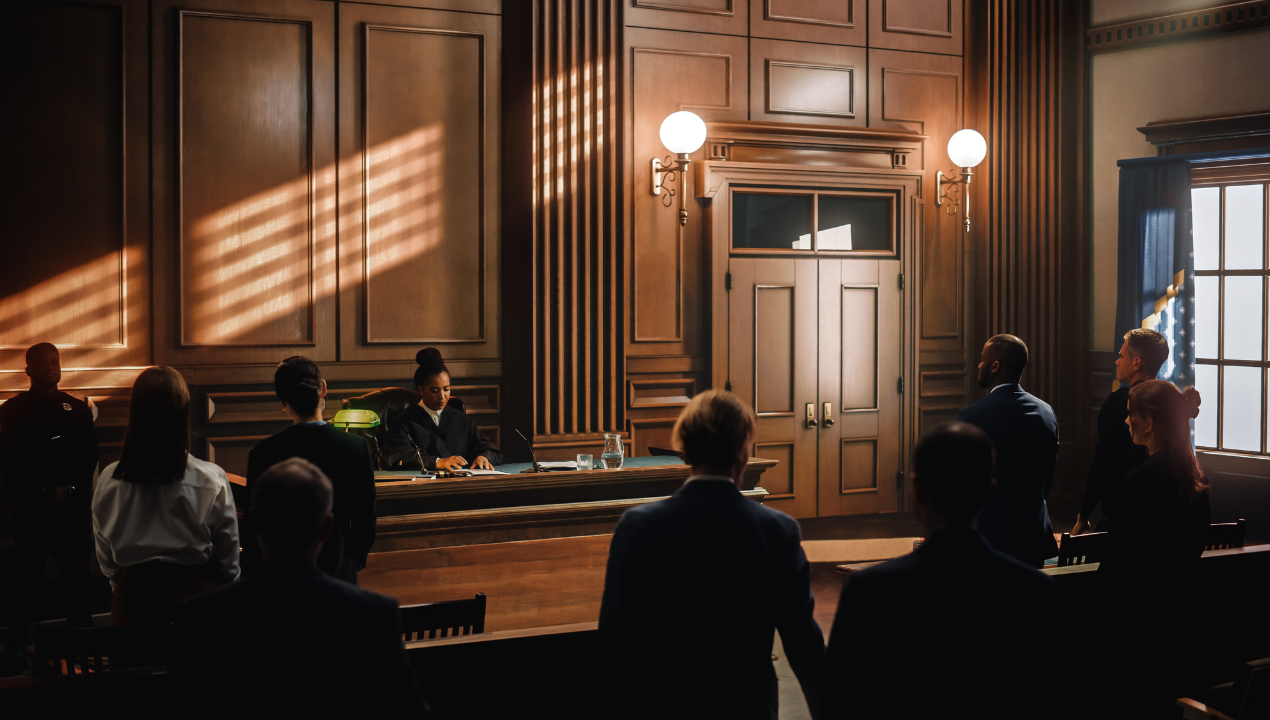The Difference Between Criminal Court and Civil Court
When legal troubles arise, it's important to understand the distinction between criminal and civil court. The way cases are handled, the types of disputes involved, and the consequences of each are very different. For anyone dealing with a legal issue, especially a criminal case, understanding these differences can help you navigate the process more effectively.
In this article, we’ll break down the key differences between criminal and civil courts, focusing on how things work in Michigan. Whether you’re involved in a criminal case or a civil dispute, the law firm of Harris and Literski is here to help.
What’s the Purpose of Criminal Court vs. Civil Court?
Both criminal and civil courts serve important functions, but they address very different kinds of issues.
Criminal Court: Protecting Society
Criminal courts in Michigan handle cases where someone is accused of committing a crime. Crimes are considered offenses against the state or society as a whole, which is why the government, not the victim, brings charges against the defendant. These cases can range from minor offenses like shoplifting to more serious crimes such as assault or even murder.
Civil Court: Resolving Disputes
Civil court, on the other hand, is all about resolving disputes between private individuals or organizations. The goal of civil court is not to punish someone for wrongdoing but to compensate a person who has been harmed in some way. This could involve things like personal injury claims, property disputes, or breach of contract issues.
In a civil case, one person (the plaintiff) sues another person (the defendant) to seek financial compensation or other forms of relief. The stakes are usually financial, and there is no risk of jail time in civil court.
What Types of Cases Are Handled?
Criminal Cases
Criminal courts handle a wide variety of cases in Michigan. Some common examples include:
- DUI/DWI: Driving under the influence of alcohol or drugs.
- Assault: Physically attacking someone.
- Theft: Stealing someone’s property.
- Drug Offenses: Possession or distribution of illegal substances.
- Murder: The unlawful killing of another person.
In each of these criminal cases, the state (through a prosecutor) brings charges against the accused.
Civil Cases
Civil courts in Michigan cover a wide range of disputes, including:
- Personal Injury: If someone is injured in a car accident or due to negligence, they may file a lawsuit seeking compensation for medical bills and damages.
- Breach of Contract: If one party fails to fulfill the terms of a contract, the other party may sue to enforce the agreement or recover losses.
- Property Disputes: Neighbors, landlords, and tenants may end up in civil court over property boundaries, rental agreements, or damage to property.
Sometimes, a case can cross over between criminal and civil courts. For example, if someone is assaulted, there might be a criminal case for the crime and a civil lawsuit for medical expenses and emotional damages.
Who Are the Parties Involved?
One of the most significant differences between criminal and civil court is who’s involved in the case.
Criminal Court: The State vs. You
In a criminal case, the prosecutor represents the state of Michigan, not the victim. The defendant is the person accused of committing the crime. The victim can play a role, such as providing testimony, but they are not in control of the case.
Having an experienced criminal defense attorney, like those at Harris and Literski, is crucial for protecting your rights.
Civil Court: Private Parties
In civil court, the dispute is between private parties. The plaintiff is the person or organization bringing the lawsuit, while the defendant is the party being sued. There is no prosecutor because the state isn’t involved. Instead, each side usually has a lawyer to represent their interests.
The outcome of a civil case is typically financial. If the plaintiff wins, the defendant may be ordered to pay damages or fulfill the terms of a contract.
Burden of Proof: How Strong Does the Evidence Have to Be?
Criminal Court: Beyond a Reasonable Doubt
In criminal court, the burden of proof is high. The prosecutor must prove the defendant’s guilt "beyond a reasonable doubt," which means there’s no other reasonable explanation for what happened. This is the highest standard of proof in the legal system because the consequences can be severe.
Civil Court: Preponderance of the Evidence
In civil cases, the standard is much lower. The plaintiff only needs to show that it’s more likely than not that the defendant is responsible. This is known as the "preponderance of the evidence." Because the consequences in civil court are usually financial, the burden of proof isn’t as strict as in criminal cases.
Potential Outcomes: What’s at Stake
Criminal Cases: Jail Time, Fines, or Probation
If you’re convicted of a crime in Michigan, you could face serious penalties. Depending on the severity of the crime, you might spend time in jail or prison, pay steep fines, or be put on probation. A criminal conviction can also have long-term consequences, such as a permanent criminal record, which can affect your ability to get a job, secure housing, or even vote.
Civil Cases: Financial Compensation
In civil cases, the outcome is usually financial. If the plaintiff wins, the defendant may be ordered to pay damages. This could include covering medical bills, lost wages, or emotional distress. In some cases, the court may issue an injunction, requiring the defendant to do or stop doing something.
Rights of the Defendant
Criminal Court: Constitutional Protections
In criminal court, defendants have important constitutional rights. These include the right to a jury trial, the right to an attorney (even if you can’t afford one), and protection against self-incrimination. These safeguards ensure that defendants receive a fair trial, especially since the stakes are so high.
Civil Court: Fewer Protections
In civil court, defendants don’t have as many protections. There’s no guaranteed right to a jury trial in all civil cases, and there’s no right to an attorney if you can’t afford one. Civil defendants also can’t claim protection against self-incrimination.
Double Jeopardy and Parallel Proceedings
Criminal Court: Double Jeopardy
In Michigan, once a defendant is acquitted of a crime, they cannot be tried again for the same offense. This is known as double jeopardy, and it’s a protection guaranteed by the U.S. Constitution.
Civil Court: Separate from Criminal Cases
A civil case can proceed even if there’s been a criminal trial for the same event. For instance, someone found not guilty of assault in criminal court could still be sued for damages in civil court.
Understanding Your Rights
Criminal and civil courts may share some similarities, but they serve very different purposes. Whether you're facing a criminal case or a civil dispute in Michigan, it's essential to know which court you’re dealing with and what’s at stake.
At Harris and Literski, we specialize in helping clients navigate Michigan’s legal system, especially in criminal defense cases. If you’re facing charges, having an experienced attorney by your side is crucial to ensure your rights are protected and to achieve the best possible outcome. Contact us today for expert guidance and dedicated support.


